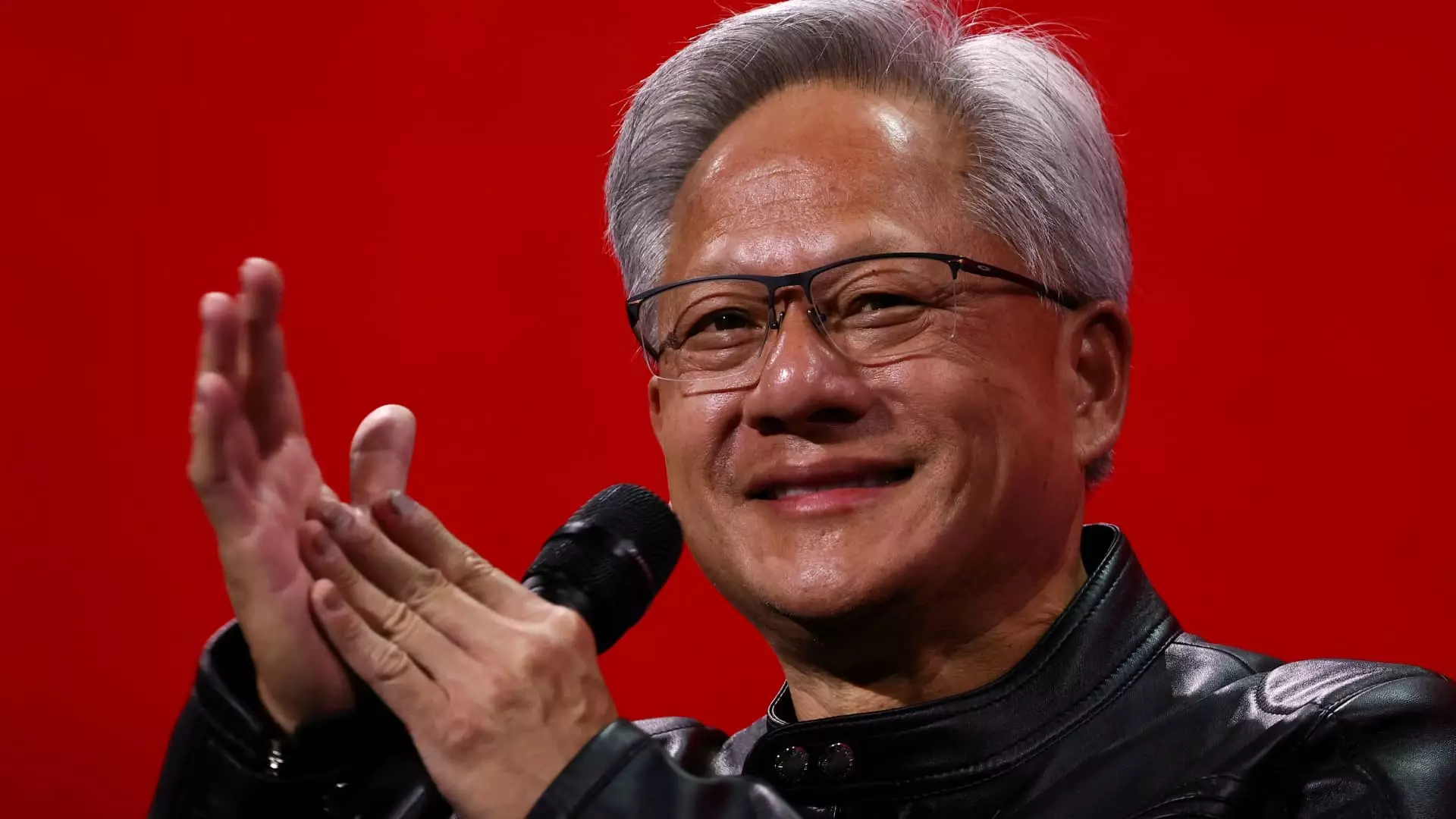Nvidia’s ascension to a staggering $4 trillion valuation has sent shockwaves through the financial world, rewriting the history books of corporate supremacy. It’s almost absurd to think that a company originally rooted in graphics processing could become the most valuable firm on the planet within a mere two years. This meteoric rise speaks to the unprecedented influence of artificial intelligence and the cloud computing revolution. Yet, beneath this surface lies a landscape that warrants skepticism, not blind admiration. The question emerges: are we witnessing true innovation or an overhyped frenzy driven by market euphoria?
While Nvidia’s technological milestones are indeed impressive, they should be contextualized within a broader economic framework. For thirty years, Nvidia managed to build a solid $1 trillion valuation, a testament to consistent growth and strategic innovation. But transforming that achievement into a $4 trillion valuation in record time raises red flags about speculative excess. It’s akin to a bubble inflating at a breakneck pace, propelled by investor FOMO and the hype surrounding AI dominance. Historically, such rapid surges have ended poorly, often delivering a harsh lesson that markets can be far more fragile than they appear during euphoric peaks.
The Power Play and Political Implications
The dominance of Nvidia, along with tech giants like Apple and Microsoft, indicates a concentrated technological ecosystem that is increasingly intertwined with geopolitical and strategic interests. China, the European Union, and the U.S. are all vying for technological supremacy, with firms like Nvidia at the center of this fierce competition. While this concentration of power may seem economically efficient, it also poses systemic risks. Over-reliance on one company’s AI hardware and software infrastructure could create vulnerabilities—be it supply chain disruptions, regulatory crackdowns, or shifts in geopolitical alliances.
From a center-right liberal perspective, the focus should be on fostering innovation while maintaining a healthy competitive environment. Nvidia’s rapid growth exemplifies the potential of free-market dynamics when innovation is rewarded, but it also underscores the necessity of prudent regulation. Encouraging competition and preventing monopolistic behavior are vital to ensuring that technological advancements serve the broader public good rather than merely enriching a select few. The political landscape must strike a balance—supporting technological progress without allowing corporate giants to stake unchecked dominance that could threaten democratic and economic stability.
Profit-Taking and Market Strategy in Turbulent Waters
The current exuberance around Nvidia’s valuation presents an opportune moment for investors to reflect critically on their positions. As someone who wisely bought during the April dip, I am wary of the danger of riding the wave without regard for potential corrections. The adage “Pigs get fat, hogs get slaughtered” resonates — greed can quickly turn into regret when market momentum stalls or reverses.
Using options strategies, such as a risk reversal, becomes an attractive way to hedge bets without sacrificing upside potential. Selling high-strike calls while purchasing puts at lower levels provides a hedge against sudden downturns, offering a measured approach in an environment ripe with volatility. While it’s tempting to hold onto this “wild child,” prudence dictates recognizing when to bank profits. Beware of the temptation to become overly optimistic, as markets often surprise even the most seasoned traders, and the risks of a sharp correction lurk just around the corner.
Nvidia’s monumental valuation is a reflection of both extraordinary technological achievement and the dangerous allure of speculative euphoria. For investors and policymakers alike, vigilance is paramount. Recognize the innovation, but also interrogate the valuation—are we witnessing true progress or a financial bubble? In the end, maintaining a grounded perspective is essential to navigating this high-stakes landscape without falling prey to the pitfalls of greed.

